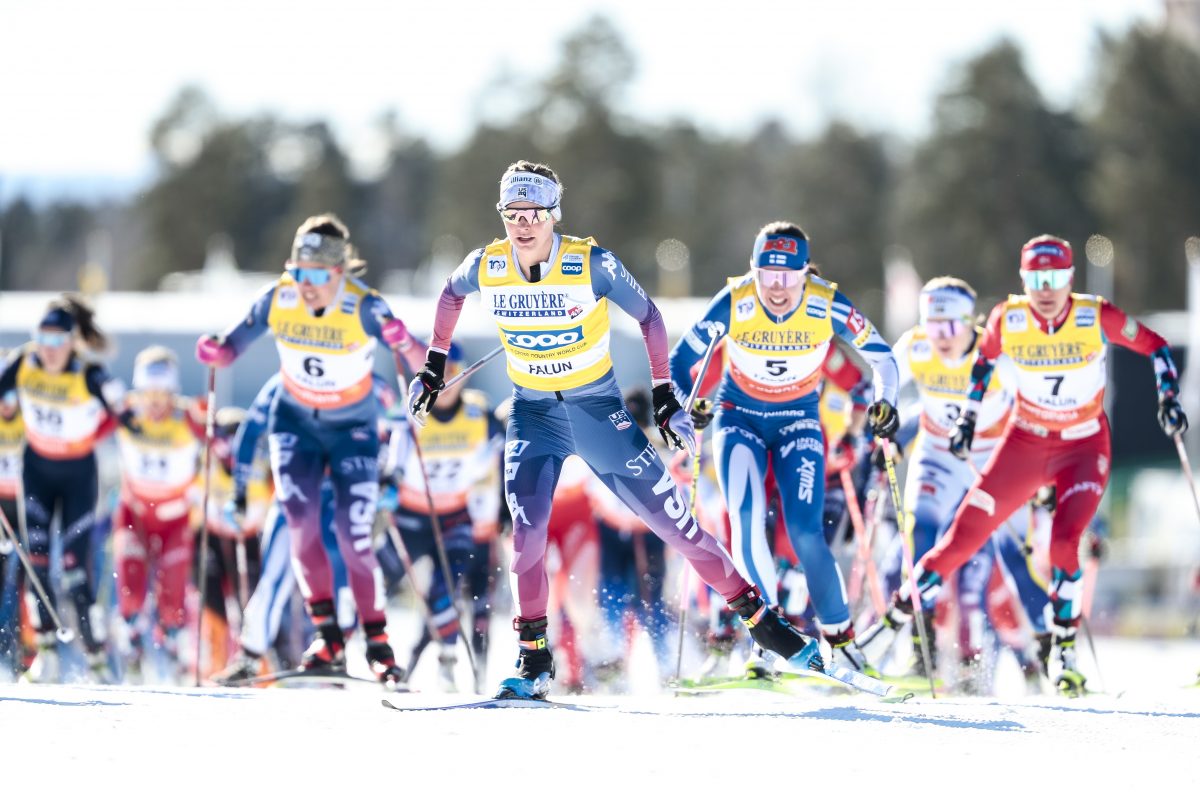
At the end of the women’s relay at 2011 World Championships in Khanty-Mansiysk, Russia, star biathlete Olga Zaitseva abruptly announced her retirement, sending the biathlon world and the Russian team into a tailspin. As FasterSkier wrote at the time, Zaitseva was fed up with the Russian Biathlon Union (RBU), the politics, and the pressure associated with representing her country.
Since then, there has been much speculation about her possible return. Zaitseva initially stuck to her guns, citing not only her frustration with the RBU but her desire to spend more time with her young son. She felt that with so much training, racing, and travel, she was missing his childhood. Zaitseva repeatedly said that she had been considering leaving the team for some time, and that her announcement had not been a spur-of-the-moment reaction to the firing of her coach, Anatoly Khovantsev, in the middle of the relay.
However, at the end of last week she finally reneged and decided to continue competing through the 2014 Olympics in her home country.
“Skiing and shooting is all I know how to do,” she said in a press conference. “Because of that, it was easier to continue than to stop.
“The season was very difficult, and after its end I announced my retirement. This decision was not a hasty one, and I had been considering it for a long time. Then I took a break and talked it over with a lot of people, my relatives first of all. As a result, I have made a decision to continue my career until 2014.”
Zaitseva was encouraged by the hiring of Wolfgang Pichler to coach the women’s team. Pichler, a German who has for the last 16 years coached the Swedish national team, is one of the most admired and respected coaches in the biathlon world. He is outspoken and opinionated, confident in his techniques, and despises doping. A few weeks ago, FasterSkier covered his decision to switch teams, which, given his previous statements about systematic doping by the Russians, was somewhat surprising.
As soon as he was hired, Pichler began courting Zaitseva.
“She is an admirable athlete, a true leader,” he told sports.ru on May 1st. “And I really want Olga to continue her career. I’m even ready to make some concessions. Zaitseva has a child, and I understand perfectly well that she cannot be present in the training camp all year long.”
After meeting with Pichler and the other coaches, Zaitseva was able to work out a system where her training will differ slightly from the program and she will be able to spend more time with her son.
“My mom and sister help me,” the biathlete said. “Thanks to the team, we have full understanding and cooperation on this issue. Because a kid needs a mother- he even asked to be here today. He wouldn’t let me go alone. ‘Where are you? I want to be with you!’ I had to promise that I’ll be back soon.”
And she believed that bringing in Pichler was a good move for the whole team, not just because she now had a coach who would work around her needs.
“I see that the girls trust him,” she said in an interview with skisport.ru. “You know, it’s very important that athletes believe in the coach. In this regard, the team is now gripped by huge excitement. I think this should produce good results.”
Results are something to look forward to, as Zaitseva didn’t have her best season in 2011. She finished the year ranked twelfth in the overall World Cup standings, a drop of four places from the year before. The women’s squad as a whole underperformed, and their World Championships relay was the worst result in the history of the Russian team.
That team is real reason that Zaitseva, described by everyone as the leader not only in terms of performance but also emotionally, returned.
“One of the most important factors was my desire to mentor and support the up-and-coming and inexperienced stars, as I am the leader of the team,” she told RT, a Russian news channel, adding that she didn’t want to sound immodest but that it was the truth.
Zaitseva said that she knew firsthand how difficult it could be to lose a veteran teammate.
“This was the main argument, of the girls and leadership, and it settled the matter,” she said in the skisport.ru interview. “I remember how hard it was after Olga Medvedtseva retired. The team is looking for experienced athletes, so the younger ones feel more confident. The older athletes are more experienced, and they are someone to lean on. This has probably been the main reason.”
Her sister and coach, Oksana Rocheva, said that “Olga is really a very responsible person, always worried about the team than for myself.”
That’s why she will continue to put up with the politics of the RBU, which she still finds distasteful.
“I guess I’m somewhat of an idealist, so sometimes it is difficult for me to reconcile,” Zaitseva told skisport.ru. “Sometimes it seems like it just can’t be that people are kind and good, that it’s too much to ask for them to treat each other that way. But apparently, that’s just not how it works, and we have to accept it. Compromises are always necessary, and if you want to, anyone can find a common language.”
And so she did not apologize for her earlier announcement, and stood by her reasons for making it.
“I had thought about it for a long time,” she said in the skisport.ru interview. “Only in my plans, of course, would have gone more nicely.
“[My words] were provoked, it seems to me almost deliberately,” she continued. “After the finish, I wasn’t aware of anything. I was talking to a journalist, I answered him, and I heard what had happened [with Khovantsev] in front of the whole country. I was terribly disappointed, and tired, and unhappy. If we were talking at half an hour later, I would have behaved differently. What can you do? It happens.”



